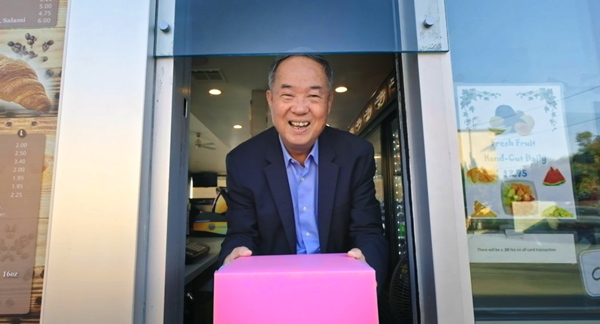
What is striking, seen from the vantage point of 2020, is how profoundly different the American response to the influx of refugees was in the 1970s than it is today. The comparison is not overstated, nor does it need to be, in Alice Gu’s strong documentary The Donut King.
In 1975, a camp was promptly set up in Southern California for thousands of Cambodians, and many American families signed up to sponsor refugee families, taking the responsibility to find them homes and jobs. Governor Jerry Brown voiced the classic conservative response, that the influx of immigrants would burden an already distressed American economy. President Ford, however, spoke to a moral obligation to help out, citing that America was “built by immigrants.”
Ted Ngoy was one of many to reap the benefits of Ford’s decision, though his success story is of almost fairy-tale proportions. While working at a gas station, he was drawn toward a donut shop by its unfamiliar fragrance. He tried a donut and fell in love with the pastry, partially because it reminded him of a Cambodian dessert called nom kong. After that, he began working at Winchell’s Donuts, learned the tools of the trade, became a shop manager, then opened his own shop outside the chain, and began to grow his business exponentially.
Most importantly, he later sponsored more than a hundred Cambodian refugee families from his newfound position of power, passing his knowledge to them and preparing them to set up their own shops. In the ‘80’s, when Dunkin’ Donuts tried to find a footing in California, the company actually failed, because, between Winchell’s and the Cambodians, there was no room.
This film is exceptional for the efficiency with which it juggles so many disparate elements. Between interviews, historical footage, and animated sequences, Gu introduces us to a wide variety of Cambodian Americans, and their personal histories are brought richly into focus. The legacy of the Khmer Rouge dictatorship is appallingly made real as we listen to the stories of many who endured it. We are also made aware of the demands of the food industry: the physical labor involved, the absence of breaks, the sweat and tears it takes to make one’s way. It’s remarkable that this film contains such a rich picture, especially given its relatively modest running time of 98 minutes.
Though the positive impact of Ted Ngoy and his work are the focus of much of the film, Gu admirably does not shy away from the man’s dark side. It’s a fairly predictable one: with his influx of wealth, he developed a taste for gambling, which his wife indulged for a while until they were forced to separate. They had been together since they were teenagers, and the story of their relationship (which I will not spoil for the viewer) is a touching one.
The Donut King tells a story of triumph and compassion against great odds, and reminds us that, in some ways, America can fulfill its promises—many of Ngoy’s donut shops are still standing today.






Leave A Comment